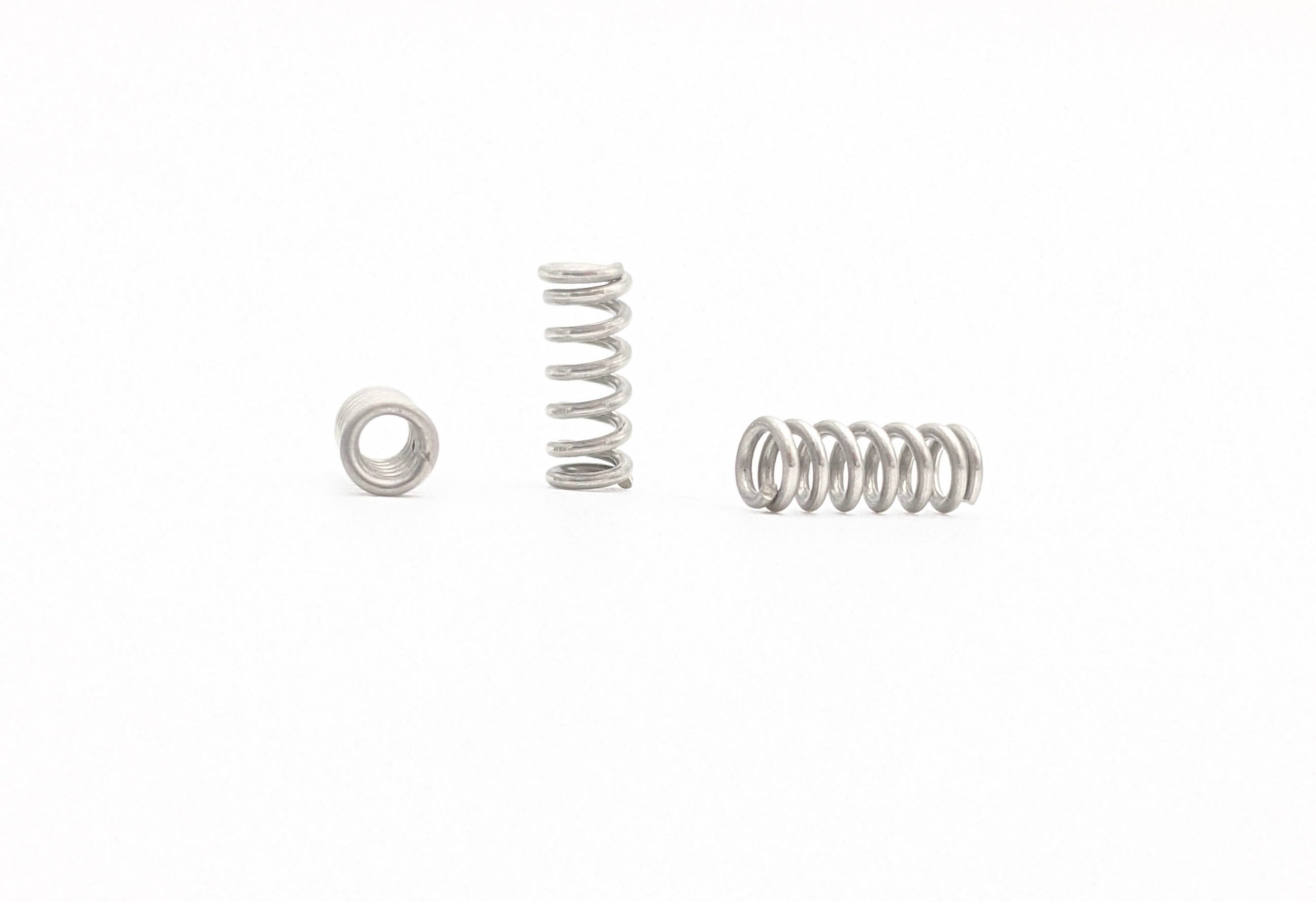Get unique, complex parts easily. No matter your requirements, Chaoyi Spring creates hard-to-produce coil springs and wire forms.
Let us help you create the custom wire form you need, from S-hooks and J-hooks to utility hooks and more.
We work closely with customers across a wide range of industries, helping them design and manufacture made-to-order parts.
Why choose Chaoyi Spring? We prioritize customer-focused collaboration, modern equipment and the latest technology to make your parts per print.
Find the information and guidance you need, from measuring a spring to learning about materials, placing an order and much more.
Imagine a world without clocks, watches, or even wind-up toys. It's hard to fathom, isn't it? All these mechanisms rely on a small, unassuming component known as the mainspring. This


Imagine a world without clocks, watches, or even wind-up toys. It's hard to fathom, isn't it? All these mechanisms rely on a small, unassuming component known as the mainspring. This seemingly simple coil of metal holds the key to unlocking the intricate mechanics that govern our perception of time. In this article, we'll delve into the fascinating world of the mainspring, exploring its history, its functions, and the science behind its remarkable ability to store and release energy.

The story of the mainspring begins with a humble bow. While not technically a coil spring, the bow's ability to store and release energy through its elastic properties laid the groundwork for more sophisticated spring mechanisms. Early civilizations, particularly those of the Bronze Age, utilized tweezers, which showcased the potential of spring-like mechanisms. These early innovations paved the way for the invention of the coiled spring, a pivotal moment in the development of timekeeping devices.
The first coiled springs emerged in the 15th century, finding their way into door locks. Soon after, the first spring-powered clocks appeared, marking a significant leap in clockmaking technology. By the 16th century, these clock mechanisms evolved into the first large watches, further showcasing the versatility and power of the mainspring.
In 1676, the renowned British physicist Robert Hooke established a foundational principle that governed the behavior of springs: Hooke's law. This law, which states that the force exerted by a spring is directly proportional to its extension, provided a scientific framework for understanding and manipulating the power of springs.
The mainspring, as its name suggests, is the driving force behind many mechanical timepieces. Imagine it as a tightly wound ribbon of metal, coiled into a compact spiral. When wound, the mainspring stores a significant amount of elastic potential energy. This stored energy is gradually released as the spring unwinds, powering the gears and hands of the clock or watch.
Think of it like a stretched rubber band. When you stretch it, you're storing energy, and when you release it, that energy is used to propel something, like a paper airplane. Similarly, the mainspring's stored energy drives the intricate mechanisms of a clock or watch, keeping time ticking.
Hooke's law, the cornerstone of spring physics, explains the relationship between the force exerted by a spring and its extension. It states that the force is directly proportional to the displacement from the spring's equilibrium position. This means that the further the spring is stretched or compressed, the greater the force it exerts.
This relationship can be represented mathematically as F = -kx, where:
The negative sign indicates that the force exerted by the spring is always opposite to the direction of the displacement. This means that when the spring is stretched, it pulls back, and when it's compressed, it pushes out.
The mainspring's influence extends far beyond the realm of timekeeping. It plays a crucial role in various mechanical devices, including wind-up toys, music boxes, and even mechanically powered flashlights. The mainspring's ability to store and release energy makes it an indispensable component for any device that requires a reliable and consistent power source.
Although the mainspring has been a cornerstone of mechanical engineering for centuries, its role in modern technology is evolving. While quartz and digital clocks have become increasingly prevalent, the mainspring continues to find new applications in specialized areas like precision instruments and high-end watchmaking.
The elegance and precision of the mainspring continue to fascinate engineers and enthusiasts alike. Its ability to store and release energy with remarkable accuracy and consistency remains a testament to the ingenuity of past generations and a testament to the enduring power of mechanical design. As technology advances, the mainspring may take on new and unexpected forms, but its legacy as a powerhouse behind time and motion will undoubtedly endure.
The mainspring, a humble coil of metal, holds within its delicate form the power to drive time itself. Its history, intertwined with the evolution of clockmaking, showcases its undeniable impact on the development of technology. The mainspring's ability to store and release energy, governed by the principles of Hooke's law, makes it a cornerstone of mechanical engineering. From the ticking of clocks to the winding of toys, the mainspring remains an integral component, a testament to human ingenuity and a reminder of the enduring power of mechanical design.
Browse some of the custom wire forms and springs that we manufacture. Don’t see what you need? We specialize in made-to-order products that meet your application requirements.
Visit Our GalleryNeed a custom wire form or coil spring? We make it work. Fill out the contact form and a representative will respond within 1 business day. If you have a PDF or CAD file, you can submit to request a quote.